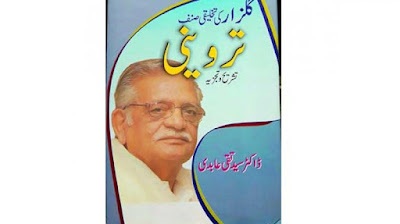A poetic unit of three verses, Triveni packs a punch in the last line by turning around the meaning expressed in the first two verses.
Gulzar, who has mastered the art of writing the Triveni, regaled the audience the other day at the Maulana Azad National Urdu University (Manuu).
What was billed a seminar turned into a mushaira with the renowned poet holding everyone spellbound with his three-liners. Right from Vice-Chancellor Aslam Parvaiz to professors and students, Gulzar’s recital swept everyone off their feet.
A book penned by Canada-based Hyderabadi scholar Dr Syed Taqi Abidi, Gulzar ki Taqleeqi Sinf, Triveni, Tashreeh o Tajziya was released on the occasion.
Three-line poetry is not new to Urdu language.
There are various forms like the musallu, the haiku, tikoni, salees and the tipai where an idea is expressed in three lines. But Triveni differs in that it’s free from the restrictions of radeef and qafia (rhyming).
The thought expressed in the first two lines takes a new twist when the third line is read.
For the last few years, Gulzar has been writing Trivenis on subjects as varied as love, the calamities of life, social milieu and moral values.
The best part of Gulzar's shayeri is that one doesn't need to consult a dictionary. His poetry is simple and down to earth. What’s more, he doesn’t hesitate to borrow commonly used English
Asked why he named his three-line verse Triveni, Gulzar said the first two verses meet like the Ganga and the Jamuna and complete a thought and an emotion. But beneath these streams runs another river, the Saraswati, which is apparently hidden. He likens the Triveni’s third line to the Saraswati which makes a world of difference.
Sample this triveni:
Samne aye mere, dekha mujhe, baat bhi ki
Muskuraye bhi purani kisi pehchan ki khatir
Kal ka akhbar tha, bas dekh liya, rakh bhi diya
(You come before me, acknowledge me, and even talk to me
Your smile reveals our long acquaintance
Like yesterday’s newspaper, read and discarded)
At a time when Urdu readership is dwindling, Gulzar remains its face.
In his own inimitable way, he is trying to keep the flickering flame burning. He wants the language to be made simpler for Hindi readers.
He superbly captures the dilemma facing Urdu thus:
Badi aristocracy hai zaban main Faqeeri mein, nawabi ka maza deti hai .
J.S.Ifthekhar,
Hyderabad based journalist.
Article published in Deccan Chronicle
Dated November 25,2018
.











0 comments:
Post a Comment